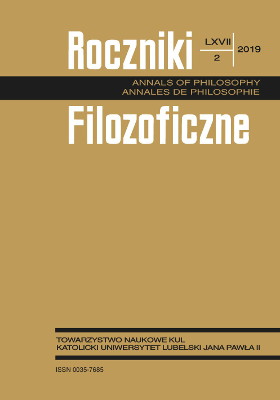Nie być człowiekiem partyjnym (przeł. Dorota Leszczyna)
Abstrakt
Oryginał: José Ortega y Gasset, „No ser hombre de partido”, w: idem, Obras completas, t. IV (Madrid: Fundación José Ortega y Gasset/Taurus, 2005), 306–313. Zgodę na przekład i jego publikację wyrazili spadkobiercy Ortegi, reprezentowani przez Andreasa Ortegę Kleina.
Esej „No ser hombre de partido” autorstwa José Ortegi y Gasseta ukazał się po raz pierwszy w argentyńskim czasopiśmie La Nación. Został podzielony na dwie części. Pierwszą opublikowano 15 maja 1930 r., drugą zaś 3 czerwca 1930 r. Przedmiotem refleksji jest tutaj problem „partyjności”, który rozpatruje się z dwóch perspektyw — metafizycznej i społecznej. Pierwsza czyni z „partyjności” przejaw kompensacji, tj. zafałszowania własnego bytu i braku akceptacji dla własnego powołania. Druga z kolei wskazuje, że partyjność stanowi zjawisko historyczne, którego początki sięgają XIX stulecia. To wówczas pojawia się po raz pierwszy wykładnia społeczeństwa jako permanentnej i wiecznej walki, co wymaga ukonstytuowania walczących ze sobą grup, tj. partii. Ortega natomiast pragnie przezwyciężyć obie wersje partyjności. Dlatego staje po stronie autentyczności naszego jednostkowego życia i nieuwarunkowanych partyjnie idei, uczuć i wartości.
Bibliografia
Marks, Karol, i Fryderyk Engels. Manifest komunistyczny. Przełożył Tadeusz Zabłudowski. W: Karol Marks i Fryderyk Engels. Dzieła. T. 4, 511–549. Warszawa: Książka i Wiedza, 1962.
Marks, Karol. Przyczynek do krytyki ekonomii politycznej. Przełożył Edward Lipiński. Warszawa: Książka i Wiedza, 1951
Mannheim, Karl. Ideologie und Utopie. Bonn: Cohen, 1929. Polski przekład: Ideologia i utopia. Przełożył Jan Miziński, wstęp do wyd. polskiego Jadwiga Mizińska. Wyd. I. Lublin: Wydawnictwo Test, 1992; Wyd. II: Warszawa: Wydawnictwo Fundacji Aletheia, 2008.
Copyright (c) 2019 Roczniki Filozoficzne

Utwór dostępny jest na licencji Creative Commons Uznanie autorstwa – Użycie niekomercyjne – Bez utworów zależnych 4.0 Międzynarodowe.





